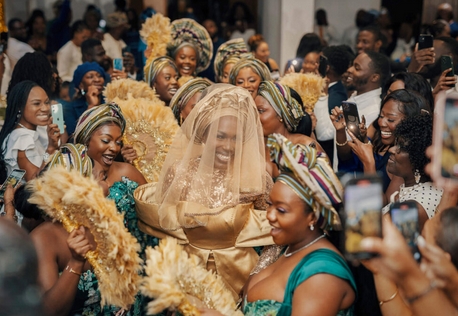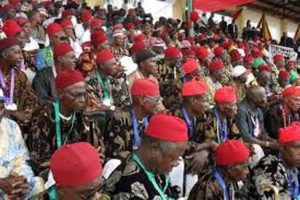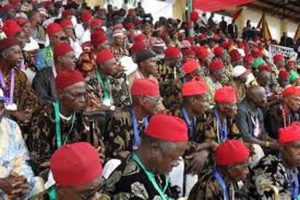
The Yoruba traditional wedding ceremony, Ìgbéyàwó is one of the most important social events in Yoruba culture. It goes beyond the union of two individuals and signifies the joining of two families and communities. Deeply rooted in tradition, the ceremony is both a celebration of love and an expression of cultural heritage. It is characterized by colorful attire, symbolic rituals, lively music, and communal joy. The Yoruba people place a strong emphasis on respect, especially for elders and family values, and these themes are deeply reflected throughout the wedding process.
The traditional wedding process begins with an introductory meeting between the two families. This meeting, often referred to as “Mo mi n mo e,” which means “know me and let me know you,” is where the groom’s family formally visits the bride’s family to declare their interest. It is usually a private event attended by close family members, and it serves as the foundation for the more elaborate engagement ceremony. During this meeting, the bride’s family presents a list of items the groom’s family must provide for the engagement. These items typically include yams, kola nuts, honey, palm oil, fruits, alligator pepper, drinks, clothes, jewelry, and a symbolic bride price.
On the day of the engagement, which is the highlight of the traditional wedding, both families gather in a festive atmosphere. The groom’s family arrives first, often dancing into the venue with music and drumming, while carrying the required gifts. The bride’s family receives them warmly but may playfully delay their welcome as a way of testing their seriousness. A master of ceremonies or spokesperson, often called the Alaga Ijoko (representing the bride’s side) and the Alaga Iduro (representing the groom’s side), coordinates the ceremony through humorous and witty dialogue. This interaction, rich in Yoruba proverbs and idioms, adds color and entertainment to the occasion.
The groom is invited in and is expected to prostrate himself before the bride’s family, often three times, as a sign of respect and submission. His friends or groomsmen may join him in this act, which is an essential part of Yoruba culture. Afterward, the bride is invited out, beautifully dressed in traditional attire such as Aso-Oke, with matching head tie (gele), beads, and accessories. She dances into the venue accompanied by her friends and family. She kneels before her parents and the groom’s parents to receive their blessings. Then she presents a cup of palm wine or drink to her groom as a symbolic gesture of her acceptance, after which the groom also seeks blessings from his own parents and the elders.
The ceremony continues with the reading of the proposal letter from the groom’s family and the acceptance letter from the bride’s family. Both letters are read aloud to the audience, signifying the formal agreement between the families. A symbolic exchange of rings or gifts between the bride and groom may also take place. After all formalities, the couple is declared husband and wife traditionally, and the rest of the day is filled with celebration, dancing, and feasting. Live traditional music, such as talking drums (gangan), and sometimes modern bands, provide entertainment throughout the event.
Food is an essential aspect of the Yoruba wedding. Guests are served a variety of traditional delicacies like jollof rice, amala, efo riro, moin-moin, assorted meats, and different types of soups and stews. Drinks are shared generously, and souvenirs are often distributed to guests as tokens of appreciation. The atmosphere is one of communal joy, as everyone present, whether family or friend, participates in the celebration.
Yoruba traditional weddings are not just ceremonies but rich cultural expressions that teach values, uphold customs, and reinforce family bonds. They are often accompanied by prayers, blessings, and sometimes spiritual rituals, depending on the beliefs of the families involved. Even in modern times, when couples may also have religious or civil weddings, the traditional engagement remains a key part of the marriage process among the Yoruba.
In conclusion, the Yoruba traditional wedding is a beautiful blend of ritual, celebration, and cultural pride. It reflects the deep respect for family, the importance of community, and the rich heritage of the Yoruba people. Through its elaborate processes and festive spirit, it continues to serve as a memorable and meaningful way to mark the beginning of a marital journey.








